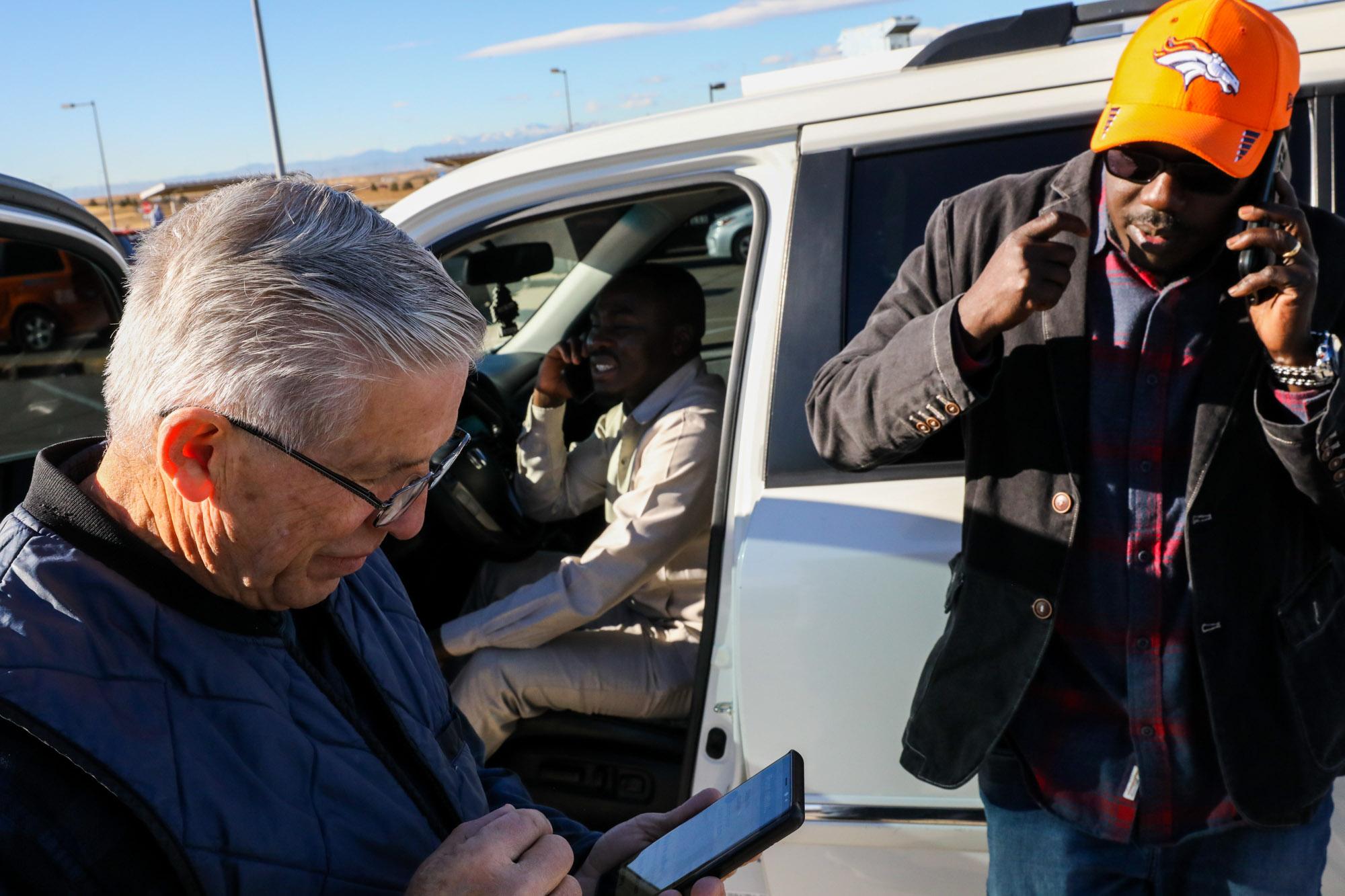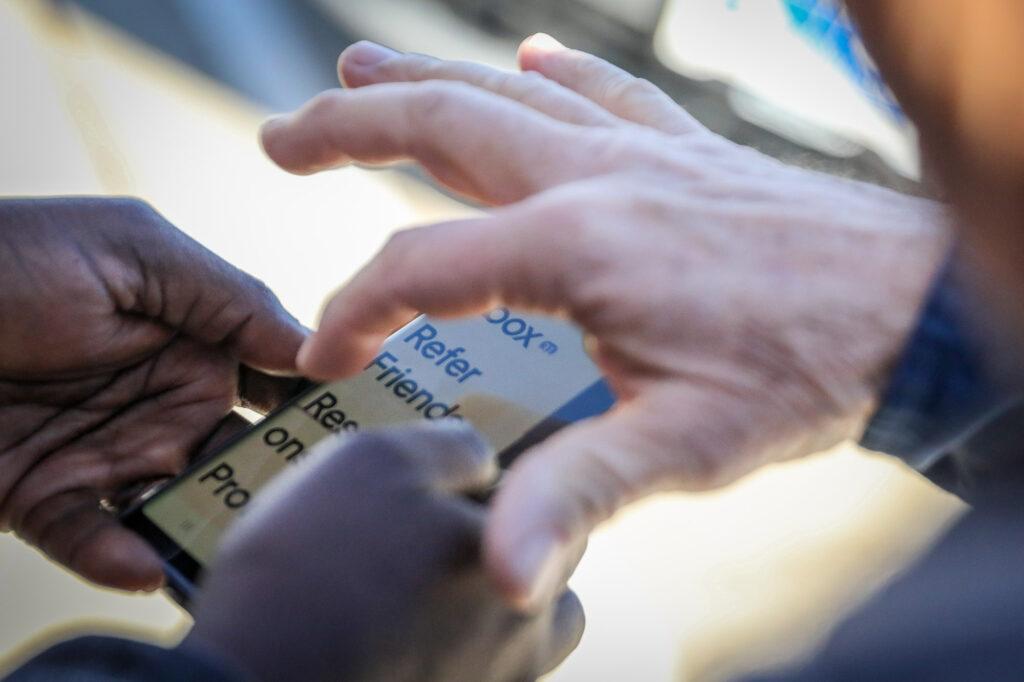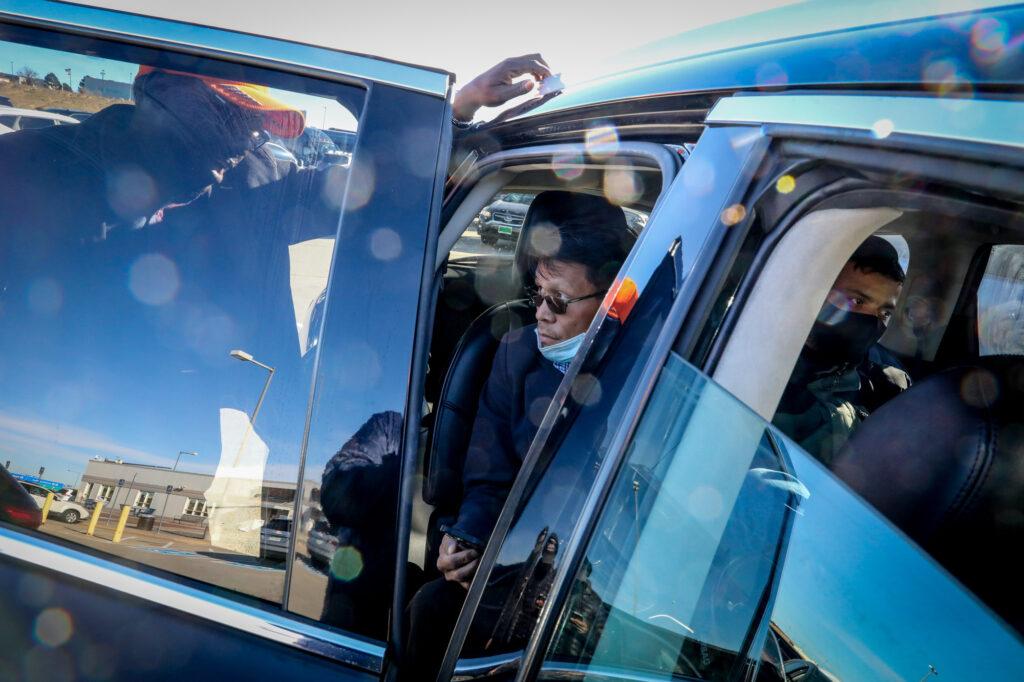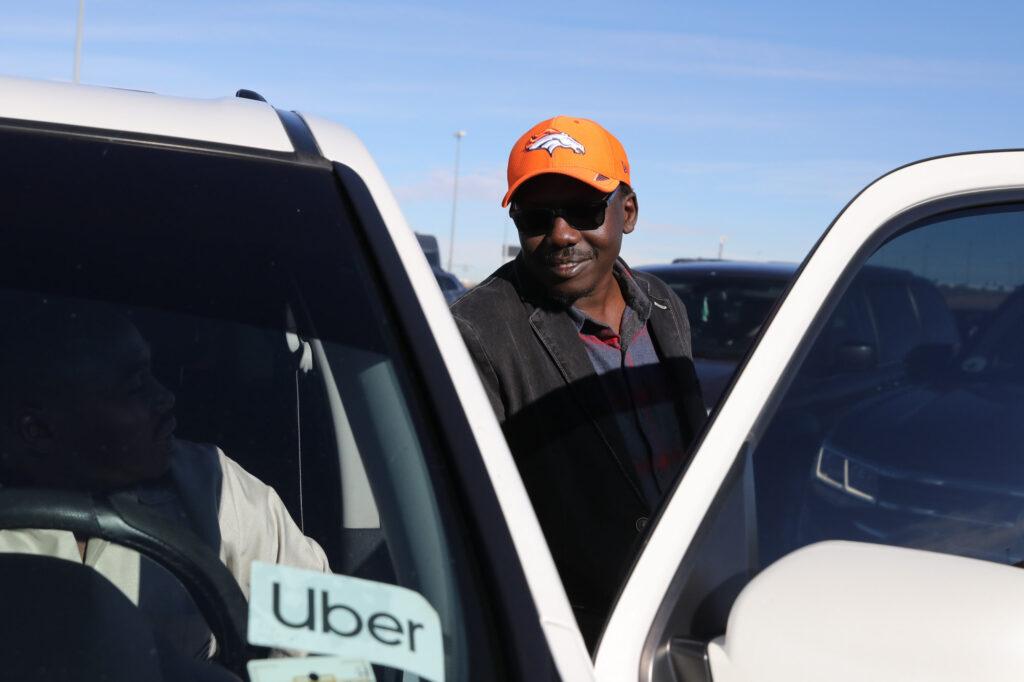
It’s not easy to find a lot of Uber and Lyft drivers in one place — after all, they’re independent contractors circling the roads in their personal vehicles.
But there is one spot: Denver International Airport.
“It’s where a lot of people come and wait,” explained Michael Machar, a ride-share driver, as he walked between long rows of vehicles in a parking lot about a mile from the terminal. “They spend a lot of hours here.”
On a recent Monday morning, the lot was lined with taxis, limos and cars marked with Uber and Lyft stickers. Most everyone was waiting to pick up passengers — except Machar.
“My goal is (for) everybody to know their rights and also to be able to negotiate with Uber, so we can make a better earning,” he explained.
Machar is a leader of Colorado Independent Drivers United. It’s not a traditional union — labor laws and Uber’s business model make that impossible. Instead, he was trying to convince drivers to join the group in its campaign to make the platforms more responsive and transparent in Colorado.

So far, he said, CIDU has signed up more than 400 drivers, who are asked to pay $25 a month in dues. As he toured the parking lot, it took Machar a few hours to recruit several more — all of them sharing their own complaints about the ride-sharing giants.
“Hey, roll down the window, huh, buddy?” Machar said as he rapped on a black Kia SUV. Inside, several drivers chatted while they waited for their next rides.
Pausing his conversation with his friends, Paul Rai was eager to learn about Machar’s campaign. He said he’d been driving for the companies for seven years.
“Because we don’t have any choice, so this is my full-time job,” said Rai, who emigrated from Bhutan. “We just try to … survive, (for) our family.”
CIDU’s organizing effort is the Colorado face of a national fight.
Around the country, ride-hailing companies are pushing to set the rules for the gig economy. Most notably, several gig platforms bankrolled Proposition 22 in California in 2020, which exempted transportation apps from the state’s standard labor laws and set up a separate set of rules for them. (It passed, but it’s on hold because of a lawsuit)
Similar ballot measures have been proposed in other states. None have surfaced in Colorado yet, but Rep. Matt Gray said tensions are building.
“It’s a situation that’s going to require some creative and cooperative thinking — or it’s going to go to the ballot,” said Gray, a Democrat who focuses on transportation issues. “There’s a lot of distance between the parties.”
Colorado Independent Drivers United launched in 2019 and has been steadily building its membership. Late last month, it went public with its latest campaign: The group alleges the platforms are violating state law by withholding information about their pricing algorithms from drivers, and they want regulators to take action.
“It is past time that the (state Public Utilities Commission) uses its legal authority to shine light on the ways these powerful companies set wages for their drivers, prices for their customers, and profits for themselves,” read a letter that the drivers’ group recently sent to the PUC asking for it to step in.

David Seligman, an attorney with the worker-advocacy legal group Towards Justice, is assisting the group.
“That sort of transparency is required by law and the absence of that transparency strips these workers of their power, their autonomy and their purported independence,” he said in an interview.
In the airport parking lot, Machar occasionally had trouble convincing drivers to talk. Many are immigrants, which may make them more afraid to speak up, he said. Some were skeptical. One said drivers simply needed to work harder to get ahead. And several were afraid of reprisals for speaking out.
“They don’t trust,” Macharsaid after one unsuccessful attempt. “They don’t trust Uber, they don’t trust public.”
Drivers want more transparency about fares
But CIDU’s message eventually found a receptive audience, especially among Lyft drivers. Until recently, they could see how much money individual riders paid for their trips. That allowed them to know what percentage of the fare went to the platform.
Now, Lyft only gives riders a weekly aggregated summary of how it’s splitting fares.
“We need to know how much the customer or passenger is paying,” Rai exclaimed.
In a statement, a Lyft representative said the company had “decoupled” driver pay from rider fares in order to help riders and drivers understand payments better. The company has argued it’s “misleading” for drivers to look at individual fares.
“Drivers now earn based on a rate card that includes the time and distance of a ride, as well as through incentives and tips. For these drivers, it continues to be a great time to drive with many in top markets earning significantly more than they were pre-pandemic, wrote CJ Macklin, a spokesperson for the company, in an email.
Some drivers also complain that, on both platforms, they may not know how much they’ll be paid for a ride before they accept it — and are penalized for refusing. The drivers’ group argues that, under state law, they should get more information in advance.

Mo Sarr, an immigrant from Senegal, said all these issues came into play when he accepted a long 240-mile fare from Denver to Grand Junction. Lyft only paid him $200 for the nearly all-night trip, he said, and he was unable to find a passenger to take back to Denver, leaving him with steep costs in gas and time.
To add insult to financial injury, Sarr said, he learned the passenger paid a total fare of $500 for the ride. That meant Lyft took a 60 percent cut, something Sarr only learned because the customer shared the information.
“They don’t respect the driver, you know what I mean?” Sarr said.
A spokesperson for Uber, Harry Hartfield, said that, for its part, the company already explains its methods for calculating fares and rates, and provides a breakdown after each trip. “We'll continue to listen to drivers and ensure we're providing as much information as possible to maximize their earnings on their own schedule,” he wrote in an email.
The state’s PUC is reviewing the letter from the drivers and “working through our legal options to address the request,” wrote spokesperson James Cullen.
'They can fire me, they can fire whoever they want, but it’s our right'
As the day wore on at the parking lot, Machar ran into new recruits and old friends alike.
“If I can get half of (the drivers on board), the message should be out there, it should be carried on,” Machar said. “They can fire me, they can fire whoever they want, but it’s our right.”
Among the crowd that day, Machar ran into a friend with a different perspective on organizing — taxi driver Idris El Dursi, a member of the driver-owned co-operative Union Taxi.
“So I own the company. I have part of the company,” he said, urging Machar to consider a similar route.
“If they don’t unite, they can’t do anything!” he said.
But a fellow taxi driver, Ahmad Jadallah, didn’t think that labor organizing would do much against such large platforms.
“Uber is bigger than all the companies,” Jadallah said.








